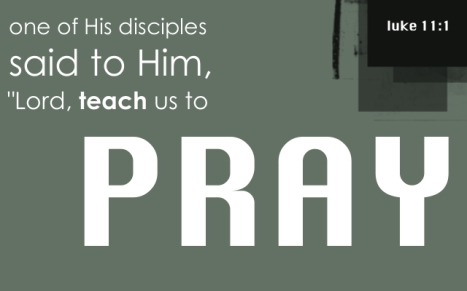What is grace giving? The purpose of this post is to discuss the nature of grace giving as found 2 Cor. 8-9 and also to discuss some principles of giving in the New Testament. Grace giving has to start with an understanding of the purpose of giving. Paul writes, “…but they gave themselves first to the Lord and to us by the will of God” (2 Cor 8:4). Giving is an act of service for God’s kingdom (2 Cor. 8:19-20). It is a ministry opportunity to minister to the saints (2 Cor.8: 4).
Grace giving, secondly, starts with an understanding that everything one has is of divine grace. Belleville writes, “It is only as God blesses and enables that we are able to give in the first place.”[1] God gave grace to the church in Macedonia in order for them to give beyond their ability. The word grace appears nine times between chapters 8-9 showing the need for grace in the act of giving.[2] God gives most and because of it believers are to give in order to follow God’s example. In addition, Garland writes, “God is lavishly generous and abundantly supplies us with everything necessary to have enough for our own need and to be generous with others.”[3] In other words, grace giving has an understanding that God will supply all that we need in order for us to give beyond our ability. God will and does bless so that we can give.
The third element of grace giving is it does not refer to any amount of money, rather it is giving according to one’s ability and beyond one’s ability.[4] It is not ten percent or twenty percent of one’s income. It is not giving out of the surplus, but out of one’s condition. For the Corinthians it was giving according to their ability. Grace giving does not compel a person to “go into debt, to become disadvantaged or overburdened,” rather it is giving out of generosity even if it is a small gift.[5]
The fourth element of grace giving is it has theological consequences.[6] Paul uses words like “grace,” “privilege,” “partnership,” “sharing,” “love,” “blessings,” “ministry,” to describe the ministry of grace giving.[7] It is not giving money for the sake of giving. It is a ministry to the poor yet through it the giver will experience fellowship, partnership, joy, and so many more benefits. God says it is better to give than to receive.
The fifth element of grace giving is it is done with gladness of heart not under compulsion or grudgingly because God loves a cheerful giver (2 Cor. 9:7). Garland writes, “God, who knows the heart, values only those gifts that come as a free expression of the deepest part of our souls.”[8] If a person gives out of a grudging heart it does not matter the amount, that attitude would cancel out the gift.
The first principle we can learn about grace giving is giving is in proportion to what a person has, not according to what he does not have” (2 Cor 8:12). The Old Testament required a person to give a portion of one’s income, but the New Testament principle is give according to what one has. This principle is important to grasp because “it is not the gift — neither the fact of it nor its amount — that is “acceptable to God, but the sincere motive that inspires it, namely “willingness.”[9] This principle illustrates that giving is not dependent upon one’s resources, rather it is dependent upon God’s grace given to a person. Our giving should be in proportion to God’s grace.[10]
The second principle of giving is giving is an individual matter that one purposed in the heart (2 Cor. 9:7). Other people should not know what one gives. Jesus says, “Let not your left hand know what your right hand is doing” (Matt 6:3). There is no need to boast about giving, rather it is a private matter.
The third principle of giving is it requires resolves.[11] It is not to be done based upon emotion or carelessly. Don’t be convicted to give while the offering bag is being passed around. That type of giving is based upon emotion. Rather purpose in your heart what you will give before that time comes.
The last principle of giving is “he who sows sparingly will also reap sparingly, and he who sows bountifully will reap bountifully” (2 Cor 9:6). Belleville writes, “The principle is clear: we harvest in proportion to our planting—or, to use a contemporary maxim, ‘we get as good as we give.’”[12]
Biblical giving in the church is hard to find in modern day evangelical Christianity because pastors and teachers have not taught their people on how to give. Maybe it is time for a change. Point people back to the Bible to inform them about grace giving, so that God will get all the glory and honor.
[1] Linda L. Belleville, 2 Corinthians, The IVP New Testament Commentary Series, ed. Grant R. Osborne (Downers Grove: InterVarsity Press, 1996), 210.
[2] Ibid., 211.
[3] David E. Garland, 2 Corinthians, The New American Commentary, ed. E. Ray Clendenen, Vol. 29 (Nashville: Broadman Press, 1999), 407.
[4] Garland, 2 Corinthians, 368.
[5] Ibid., 381.
[6] Garland, 2 Corinthians, 369.
[7] Ibid., 369.
[8] Garland, 2 Corinthians, 406.
[9] Paul Barnett, The Second Epistle To The Corinthians, The New International Commentary on the New Testament, ed. Gordon D. Fee (Grand Rapids: Eerdmans Publishing, 1997), 412.
[10] Scott J. Haffmann, 2 Corinthians, The NIV Application Commentary, ed. Terry Muck (Grand Rapids: Zondervan House Publishing, 2000), 344.
[11] Belleville, 2 Corinthians, 237.
[12] Ibid., 236.



